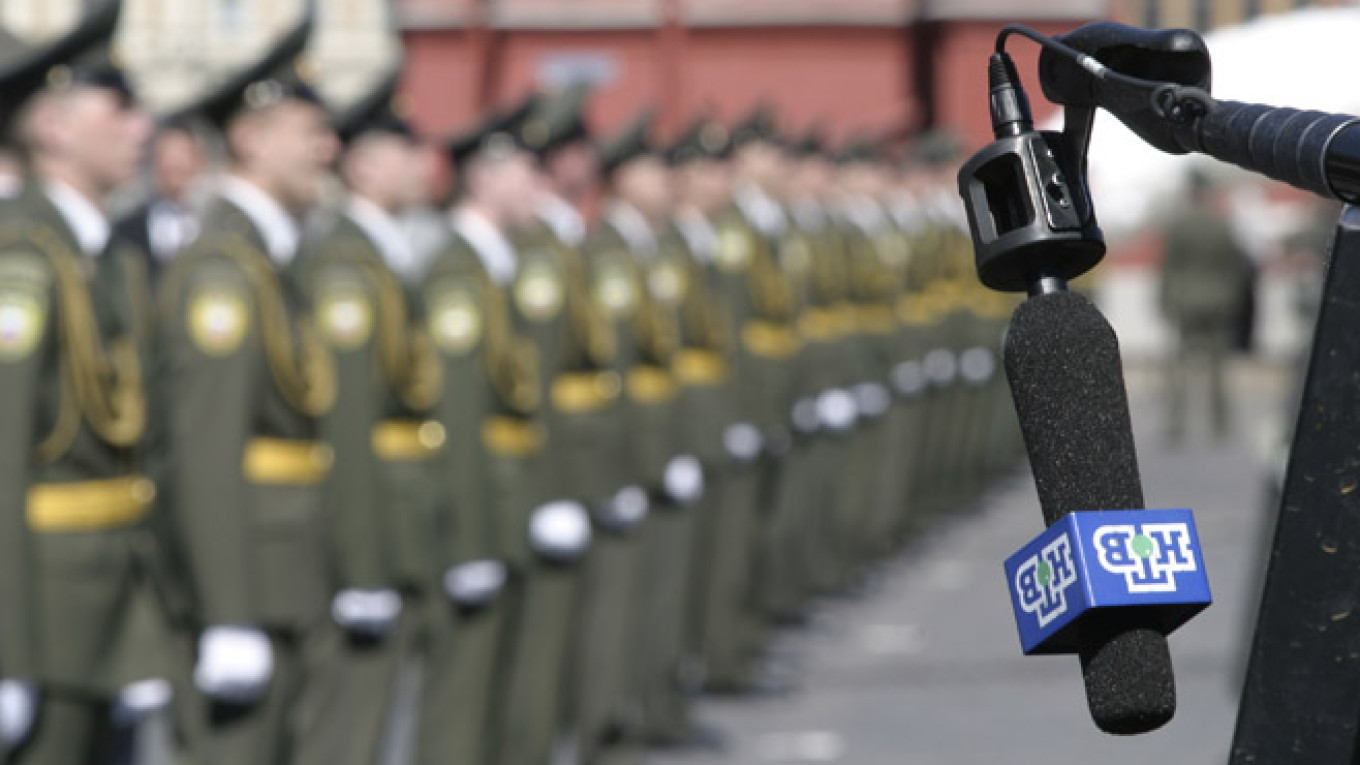Russia's media watchdog, Roskomnadzor, issued an official warning to radio station Ekho Moskvy last week. According to Russian law, if the station receives a second warning the authorities can shut it down. The cause for this action: The station ran an interview with Los Angeles Times newspaper correspondent Sergei Loiko, who recently returned from war-torn Donetsk.
Of course, it is unfair to punish a radio station for the content of a live interview: Producers had no way of knowing in advance what the speaker would say. And it is curious that Roskomnadzor did not disclose exactly which statements it found so criminal [offensive] as to justify threatening the closure of one of Russia's oldest radio stations.
However, the letter Roskomnadzor sent to Ekho Moskvy states: "This program contains information justifying the committing of war crimes." That particular phrasing is no accident. It turns out the agency issued the warning not because of an objectionable evaluation of the situation in Donetsk, but because of specific information that aired during the interview.
Information comes in only two forms: true or false. The deliberate dissemination of false information is disinformation, and that is deserving of punishment.
However, Roskomnadzor has never taken action against a single media outlet for spreading disinformation about events in Ukraine. This includes state-controlled NTV, which has repeatedly broadcast crudely manufactured falsehoods such as a story claiming that Ukrainian troops crucified a Russian-speaking boy against a billboard.
What's more, NTV public relations head Tatyana Mitkova recently stated in an interview that the station is not ashamed of running the story even though outside observers proved it was fake.
In fact, the propaganda that passes for news on state-controlled TV is essentially a war crime in itself. It whips up and maintains the anti-Ukrainian hysteria at such a fever pitch that almost the entire Russian population is now ready to take up arms and go defend the martyred Russian-speaking boys that they constantly hear about on state-controlled TV.
Incidentally, on the same night NTV aired its story about the boy supposedly used as a live missile target, the Rossia television channel "reported" that the Ukrainian military likes to cut the ears off of captured pro-Russian separatists and carve swastikas into their backs. And newscasters present all of this as fact without proffering a single photograph as evidence.
This summer, the Russian city of Lipetsk buried one of its native sons, 22-year-old Dmitry Korolev. He had voluntarily gone to Ukraine to "support the militias" and died there. In an interview with the Komsomolskaya Pravda newspaper, his mother said: "Dima tried to never miss a single TV program covering events in Kiev and other Ukrainian cities. He said that if we do not stop the massacre by the 'Banderas,' they will come to Russia and kill our people. He said that Ukraine is an artificially created state and that the 'Banderas' must stop persecuting the Russian-speaking population in the southern and eastern regions of Ukraine."
The most important point here is this: "Dima tried to never miss a single TV program." It was from state-controlled TV that Dmitry Korolev learned of roving bands of "Banderas killing our people" and of their "brutal atrocities."
It is not surprising that such reports got his young blood boiling and that he rushed to the defense of the suffering people of Donbass. And yet it never occurred to him or to his mother that Kremlin spin doctors had deliberately brainwashed them with lies in order to justify Russian war crimes against Ukraine.
So who has Dmitry Korolev's blood on their hands? The Russian journalists who deliberately peddle lies to the population? And is it possible that Roskomnadzor carries a share of the blame as well?
Andrei Malgin is a journalist, literary critic and blogger.
A Message from The Moscow Times:
Dear readers,
We are facing unprecedented challenges. Russia's Prosecutor General's Office has designated The Moscow Times as an "undesirable" organization, criminalizing our work and putting our staff at risk of prosecution. This follows our earlier unjust labeling as a "foreign agent."
These actions are direct attempts to silence independent journalism in Russia. The authorities claim our work "discredits the decisions of the Russian leadership." We see things differently: we strive to provide accurate, unbiased reporting on Russia.
We, the journalists of The Moscow Times, refuse to be silenced. But to continue our work, we need your help.
Your support, no matter how small, makes a world of difference. If you can, please support us monthly starting from just $2. It's quick to set up, and every contribution makes a significant impact.
By supporting The Moscow Times, you're defending open, independent journalism in the face of repression. Thank you for standing with us.
Remind me later.


